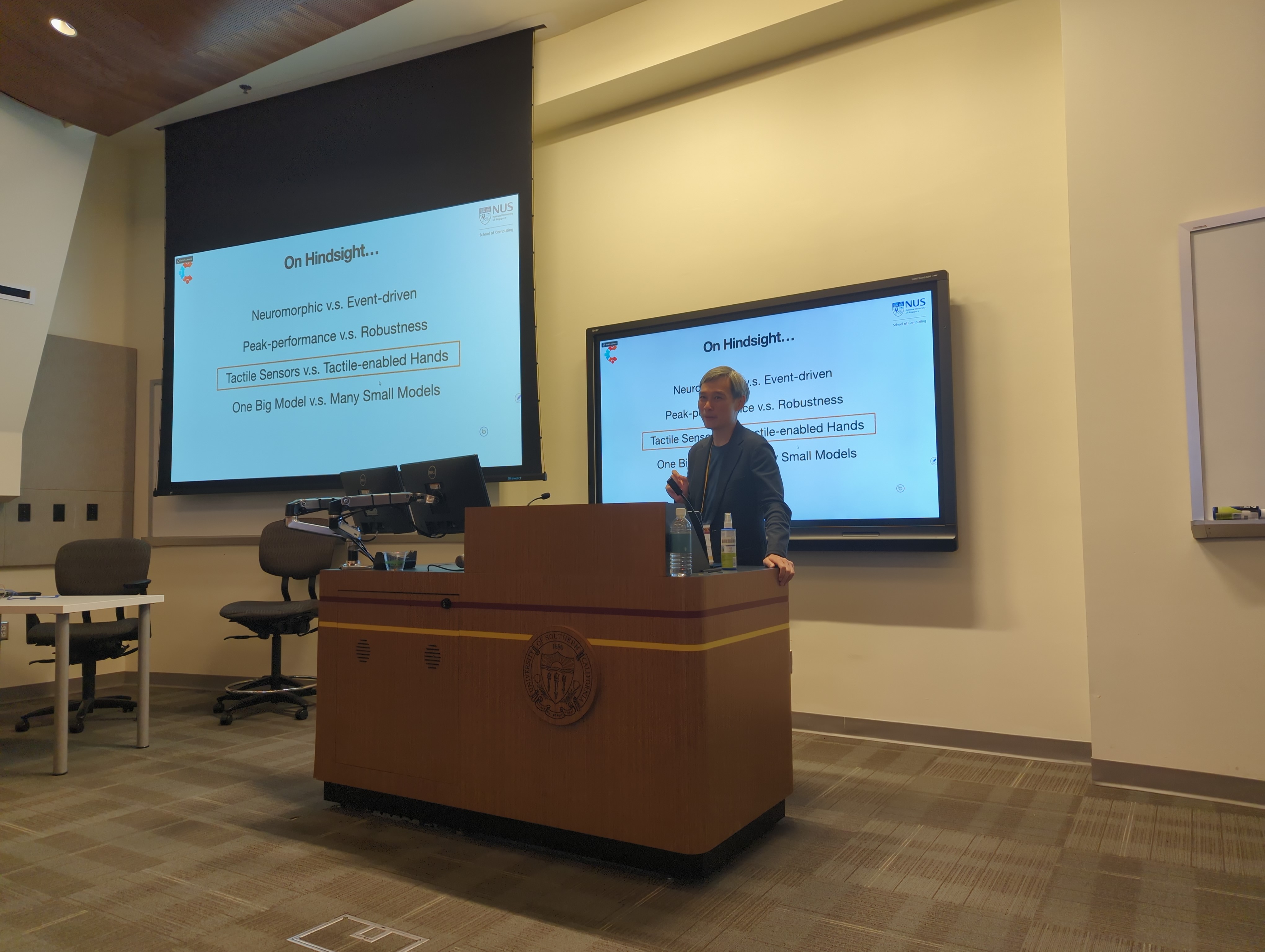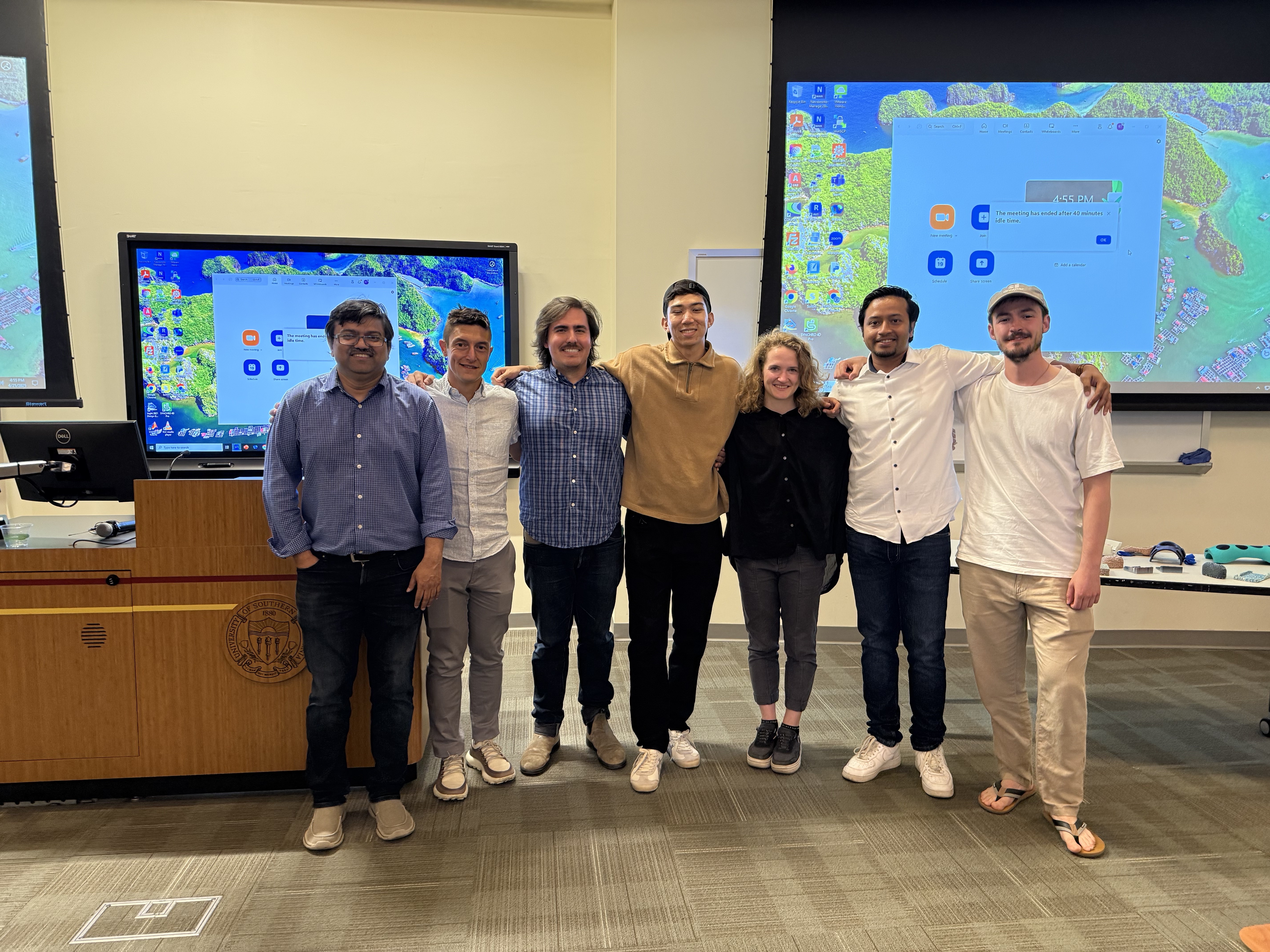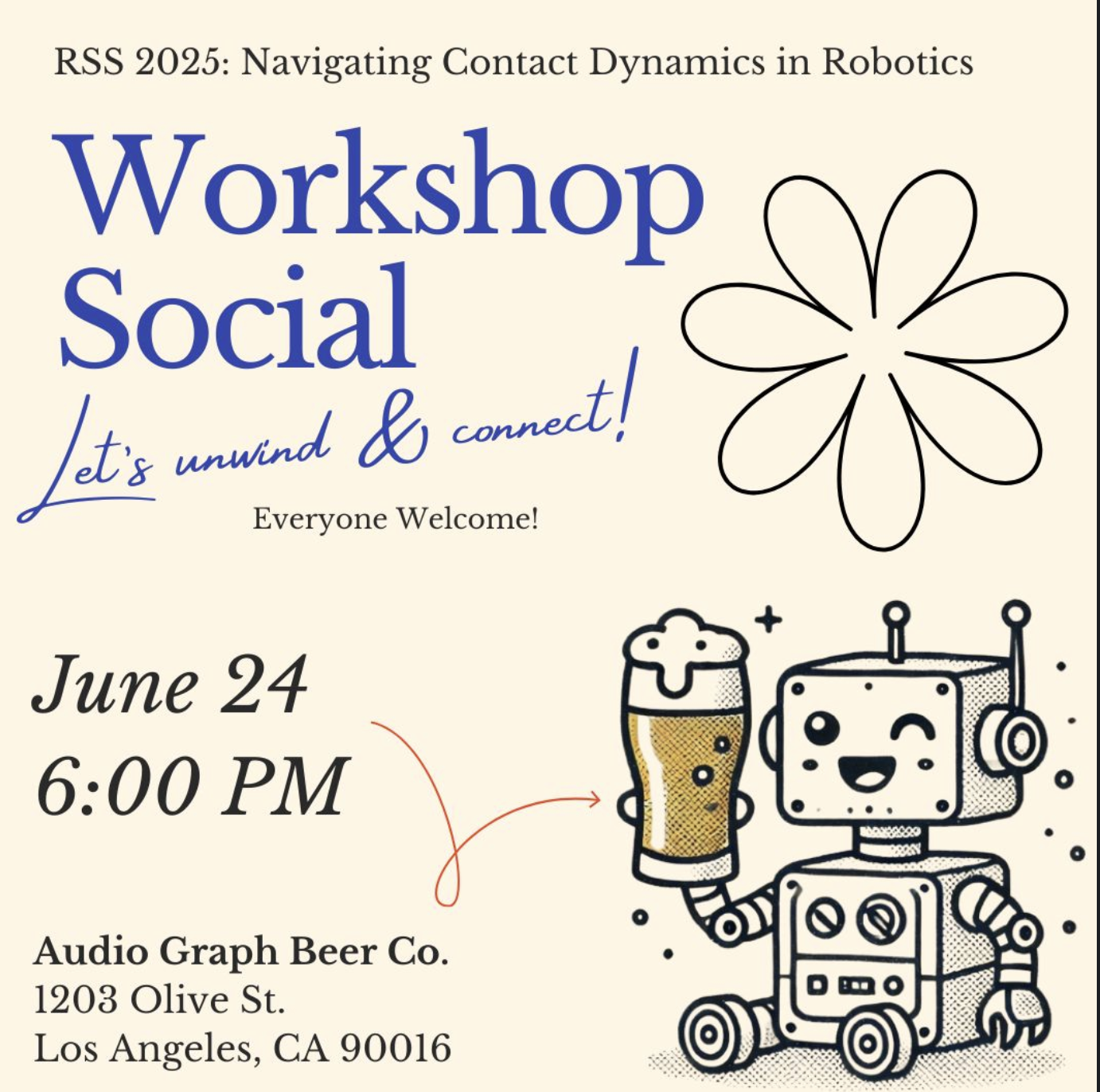Organizing a workshop: lessons learned
Summary
The purpose of this blog post is to provide insights into the process of organizing a workshop for a conference.
Background
As of today, I had the pleasure of organizing two workshops. The first one for Robotics Science and Systems (RSS) 2022 and the second for RSS 2025. Both workshops centered around the idea of robots in proximity or in contact with their surroundings. Due to the similarity in the concepts we even shared some speakers between the two workshops. For me, the first workshop was a warmup. I completed several assigned tasks and enjoyed a hands-off approach. The second workshop was a hands-on organizing role accompanied by the responsibilities of leadership. I'll focus on the second workshop to draw insights for this blog post. I will highlight key ideas that are not immediately obvious to those organizing their first workshop.
Submission process
- Start early: Give yourselves a lot of time to prepare. You have many decisions to make before the submission deadline. We had the idea of organizing a workshop about 4 months before the deadline. Start off by narrowing down the topic for your workshop and create a list of speakers that would address your research theme.
- Speakers need time to decide: Invite speakers early, it will be about a week before you receive any responses. Then use a second week if you need to follow up. After this, you may need to email more speakers and give time for their followup as well. Repeat this until you have at least four people who can confirm being on your proposal document. Note that this seldom means a guarantee that they will actually speak on the day of the workshop. (See first bullet point of the 'After getting accepted' section.)
- In-person or hybrid: Are you allowing remote speakers? Make sure this is clear in your request email.
- Attempt to obtain funding: Our workshop was sponsored by Apple and we were able to award $1500 to students. This tells the reviewers that you are invested in this workshop and gives the participants a more enticing reason to submit abstracts to your workshop. We were restricted to use the entirety of the funding for awards. However, I would recommend obtaining funding not just for awards but also to sponsor a dinner or a social.
- You are competing with other workshop submissions: Our first submission to ICRA was rejected, because they our topic was somehow both too narrow and too broad. We resubmitted the same workshop to RSS which was then accepted. We suspect that the rejection happened because ICRA favored another submission on a topic that covered similar ground. This taught us that workshop organizers can unknowingly face competition and you need to strategically differentiate yourself to be selected.
- Decide how you want the community to contribute: Abstract submissions are a common choice. Other options can include demos, debates, etc.
- Create a preliminary website: Use existing workshop websites for inspiration.
- Meet regularly with the core organizing committee. Discuss any decisions that need to be made and move quickly.
After getting accepted
- Attempt to secure the attendance of your speakers: Out of the 8 speakers we initially had on the proposal, only 3 speakers were also the ones who actually presented. 1 could not be reached, 3 withdrew because they could not make it, and 1 emailed us the day before the day of the workshop saying that they could not make it. After the workshop got accepted, we had to secure several new speakers.
- Advertise: Start advertising on mailing lists and social media. We relied on LinkedIn and Robotics Worldwide.
- Set a deadline for submissions: Generally, submission happen at the last minute. Note that you will have to review all the submissions. Give yourselves plenty of time to review the submissions when selecting a date.
- Level of originality: Without going into details, I can note that some submissions will be smaller version of already accepted papers or papers under review. Decide on what kind of originality and novelty your would like from your abstracts and make this clear in the annoucements.
- Prepare the review process that will kick in as soon as the submission deadline passes. You need to decide on who are your reviewers, how will they receive the papers, how will they submit the reviews, and how will you send out the acceptance or rejection letters.
- In the acceptance email, make sure to state what is expected of the contributors. Will they be presenting, will they need to submit a camera-ready version, will they need to attend in-person, will they need to make a poster?
- Once all the acceptances are in and you have a confirmed set of speakers, start making a schedule. Due to the tumultuous process with our speakers, we did not have a schedule to send out for the lightning talks until just a week out. This is not desirable and I would recommend sharing the schedule as early as possible.
Week of the conference
- Advertise some more: We printed our flyers and little cards to give to people during the conference. While I do not know how much this contributed to our turnout, we used this strategy for RSS 2025 and we had a higher participant turnout than in RSS 2022. If anything, it give you a good opportunity to start a conversation with people. Sometimes you need a reason to break the ice and organizing a workshop provides a great one.
- Network: We had a dinner with the speakers and a workshop social at a brewery. Both were wonderful. I would definitely do this again if I were to organize a workshop in the future.
- There will be last minute cancellations this week.
Day of the workshop
- Clear timing for speakers: Make sure speakers have a sense of how they are doing on time. This could mean having a timer they can see or have someone flash a sign when they have 15, 10, and 5 mins left.
- People take a lot of time to come back from the coffee breaks. Provide a strict start time to the attendees but secretly make sure you have room in your schedule to start later. If you officially tell people to be back at 3:00pm then you can start at 3:10pm. Same goes for the lunch break. If lunch is provided and organized, gather everyone who is present before the break and head to lunch together as a group. This creates a more cohesive and enjoyable experience for attendees.
- If you are planning on awarding a prize: We had an independent panel to judge the posters to award the prize. You need to ensure that the panel knows where the posters are. It is better if you narrow down the top 5 or so posters for evaluation based on the reviews you received. If you have 15 posters, it is nearly impossible for the judges to go through them all.
- Encourage the audience to ask questions. Lead by example and ask questions yourself.
- Take pictures!
Conclusion
Thank you for reading. My co-organizer, Riddhiman, and I have some special ideas for a potential next workshop. We won't reveal the details just yet, but note that it will be very unique. Stay tuned!








